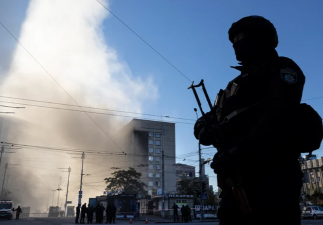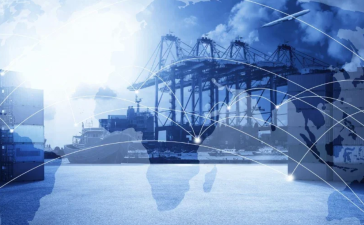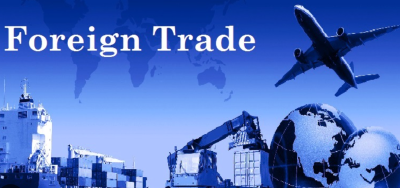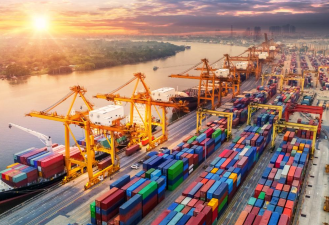The escalating conflict between Israel and Iran and the US bombing of Iranian nuclear facilities are having a profound impact on the global supply chain.The most serious consequence of a trade war is not the increase or decrease in tariffs, nor the fluctuation in bilateral trade volume, but the systemic damage to the global economic order, growth potential, and the multilateral trading system—a "slow suicide" with no winners.
Global conflicts severely disrupt the economy, exacerbate uncertainty, and prompt adjustments and changes in economic structures. In the current context of frequent global conflicts, the economic impact cannot be ignored. War and turmoil not only bring profound suffering to people but also have a far-reaching impact on the global economic order. The impact of conflict and turmoil on the global economy continues to manifest, and economies around the world are striving to address this challenge.
Israel launched airstrikes on Iranian nuclear facilities, prompting Iran to threaten to block the Strait of Hormuz. If this chokepoint, carrying 40% of global crude oil, were closed, international oil prices could soar to $130 per barrel. This conflict would not only trigger a regional crisis but also trigger a chain reaction across the global energy, financial, and trade systems.
Middle East Transformation:
From Proxy Wars to Direct Great Power Confrontation
- Nuclear Facility Strike and the Strait of Hormuz Crisis
On June 21, 2025, the Trump administration announced precision strikes on Iranian nuclear facilities, including Fordow and Natanz, claiming the action would "destroy Iran's nuclear program." Iran subsequently launched 40 missiles toward Israel and threatened to block the Strait of Hormuz. The International Energy Agency (IEA) warned that if the strait were closed, global oil prices could exceed $130 per barrel, sharply increasing inflationary pressures.
- Great Power Game: US Strategic Shift and Regional Power Reshuffle
The US Role Shift: The Trump administration has shifted from "indirect pressure" to "military intervention," attempting to force negotiations by striking Iranian nuclear facilities. However, this move has intensified regional anti-US sentiment, and the confrontation between Israel and Iran is clearly trending toward protracted tensions.
China-Russia Balancing Strategy: China has called for a ceasefire and promoted diplomatic mediation, while Russia has provided military support to Syria, creating a counterweight to the US and Israel.
Regional Blocs Diverge: Gulf states such as Saudi Arabia and the UAE support Israel, while Shiite forces such as Iraq and Lebanon's Hezbollah align with Iran, accelerating the formation of a multipolar Middle East.
- Future Scenario Forecast
Short-Term (before 2025): The conflict may enter a "frozen state" due to military attrition and external pressure, but the Iran nuclear talks have completely collapsed.
Long-Term Risk: If Iran completes its nuclearization, a "nuclear deterrence balance" will emerge in the Middle East, and proxy wars will shift to cyber warfare and drone attacks and defenses.
Global Economic Shockwaves:
Triple Crises in Energy, Finance, and Trade
- Energy Market: Price Fluctuations Force Global Shifts
The Chain Reaction of Soaring Oil Prices: Geopolitical risk premiums have pushed Brent crude oil prices above $80 per barrel. If the Strait of Hormuz is blocked, global inflationary pressures will surge, and energy import costs for developing countries will soar.
Energy Transition Acceleration: The crisis is forcing countries to invest in alternative energy sources such as green hydrogen and nuclear power. The share of renewable energy is expected to increase to 30% by 2030.
- Financial Markets: Risk Aversion Dominates Trading
Gold and the US Dollar Rise: Geopolitical risks have pushed gold prices above $3,400 per ounce, while the US dollar has strengthened due to safe-haven demand, putting pressure on emerging market currencies.
Stock Market Divergence: Energy stocks have benefited, but sectors such as aviation and shipping have fallen sharply due to rising costs. US technology stocks are facing selling pressure due to overvaluation.
- Trade and Debt Crisis
Spiking Shipping Costs: Security threats in the Red Sea and the Strait of Hormuz have lengthened shipping routes around the Cape of Good Hope, increasing global logistics costs by 15%-20%.
Worsening debt in developing countries: Rising oil prices are impacting oil importers (such as Egypt and Turkey), while shrinking foreign exchange reserves are exacerbating the risk of sovereign debt defaults.
Reshaping the geopolitical landscape:
The collapse of the old order and the rise of new powers
- Declining US leadership
The Trump administration's "war for peace" strategy has failed to resolve fundamental contradictions and instead undermined mutual trust with European allies. The EU's termination of tariff exemptions for Ukraine signals a widening crack in the transatlantic alliance.
- Power vacuum in the Middle East and regional restructuring
Israel's strategic overdraft: While weakening Iran's nuclear capabilities, it has failed to prevent the proliferation of its missile technology, potentially leading to a long-term "war of attrition."
De-ideologizing cooperation between Saudi Arabia and Iran: Jointly responding to US pressure, the two sides may relaunch the 2030 economic cooperation plan to promote regional stability.
- Chain reactions in Africa and Latin America
Shifting China-Africa energy cooperation: China is accelerating investment in key minerals such as lithium and cobalt in Africa to hedge against Middle Eastern oil risks.
"Resource nationalism" is on the rise in Latin America: Venezuela and Mexico are taking advantage of rising oil prices to expand nationalization, impacting the global supply chain.









